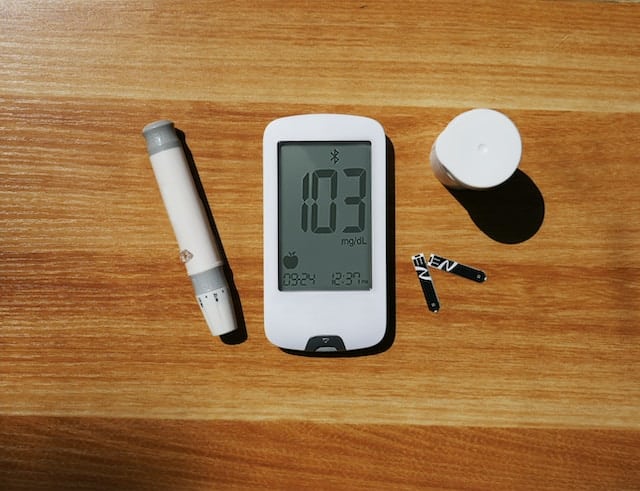How to Improve Insulin Sensitivity: Natural Methods and Dietary Strategies
Are you aware that, to the tune of 34 million Americans are suffering from diabetes, as disclosed by the Centers for Disease Control and Prevention; isn’t it? And somewhat close to 88 million adults in the U.S. are found to have pre-diabetes due to certain circumstances on health, correct? The silver lining here is there are multiple practical methods for the increase in insulin sensitivity in a natural way. Which can help in the prevention of diabetes, prediabetes, hyperinsulinemia, and gestational diabetes, not in any specific order.! Read on to learn how to improve insulin sensitivity!
Applying simple shifts in your lifestyle, like engaging in regular workouts, maintaining a balanced diet from whole food sources, and effectively managing stress, you will gain a positive influence on your body’s insulin response and aid in diabetes prevention with, lesser insulin… Not only does it benefit in the prevention of type 2 diabetes, but it also contributes to improved well-being, lifestyle enhancement, adequate insulin, and lesser hyperinsulinemia.
Alright! Improving insulin sensitivity!! It’s critical in maintaining blood sugar balance by decreasing the risk of various health complications that are associated with insulin resistance, diabetes prevention, prediabetes, diabetes mellitus, and many more…! In this content piece, we are going to delve into practical methodologies and strategies on how to enhance insulin sensitivity in your body and pragmatic modifications in everyday habits. For diabetes prevention, prediabetes, and hyperinsulinemia.
Understanding Insulin Sensitivity
Outlining Insulin Resistance
Insulin sensitivity is, like, the susceptibility of the body’s cells towards insulin in reaction to hyperinsulinemia situations, diabetes mellitus, diabetes prevention, and fasting times. By undertaking very simple and important lifestyle changes like consistently exercising, having balanced nutritious food, and managing stress, you might have a progressive impact on the body’s insulin response and prevent the progression of diabetes! If cells of one’s body have trouble making use of insulin effectively then it may result in raised sugar levels in the blood, this is increasing the risk of developing diabetes of type 2
Health issues, such as Diabetes and obesity, alongside their resulting troubles, are a serious matter of health concern, also leading to multiple other indirect impacts on the body. They largely contribute to enhancing obesity, weight gain, and diabetes owing to their influence on insulin demand, metabolism of glucose, storage of fat, and the numberless complications that they bring along. Such a condition heightens the chances of individuals with diabetes, insulin resistance, and obesity to develop cardiovascular diseases like heart ailment and stroke as a result of raised blood sugar levels and inflammation.
Affecting Health
Non-stop inflammation is another regular health effect that’s associated with resistance to insulin in patients who are having diabetes or obesity, causing numerous complications. The imbalance of hormonal regulation brought on by this disease could catalyze issues like polycystic ovary syndrome (PCOS) men suffering from dwindling testosterone levels, and some other complications. These problems, including diabetes, obesity, and other related issues in patients, clearly point out why maintaining insulin sensitivity is not only significantly important for the patient’s overall well-being but also a matter of their survival.
Linking to Diabetes
One of the deeper connections between enhancement in insulin sensitivity in people and other illnesses is that it plays a role in preventing or managing diabetes. Insufficient action of insulin due to sensitivity reduction plays a pivotal role in the occurrence of type 2 diabetes in people. Individuals having low insulin sensitivity, people with obesity, and patients who tend to have a higher possibility of prediabetes or full diabetes if not controlled well; isn’t that bad?
Methods Natural in Self-Enhancement
Adapting the Diet
Keeping a balanced diet with well-managed carbohydrate intake is essential for improving insulin sensitivity during treatment for diabetes. Including more fruits, veggies, whole foods, lean proteins, and treatments in the diet aids diabetes. For instance, selecting brown rice over white rice or going for sweet potatoes rather than regular potatoes in the diet forms a simple yet major change. Such will make a considerable difference in diabetes treatment.
Also crucial for managing diabetes and resistance to insulin is the reduction of processed foods and drinks loaded with sugar in your diet. It could be more beneficial instead to concentrate on low glycemic index foods like oats, quinoa, and legumes by including them in your meals. Such foods help stabilize the blood sugar levels and especially heightens the insulin sensitivity.
Allowing regular meal intervals in the day instead of consuming large, infrequent meals contributes to maintaining blood sugar balance for diabetes.
Lifestyle Modifications
Regular workouts have a substantial role in enhancing insulin sensitivity in diabetes patients. Varied forms of exercise are beneficial, like having a brisk walk, riding a bicycle, swimming, and any other physical workout that boosts heart rate and helps muscles use glucose more effectively, thereby reducing the requirement for insulin production in the body camp.
Relaxation methodologies like yoga or meditation sessions help in managing stress levels. This can positively impact insulin sensitivity in individuals with diabetes. Reducing cortisol hormone production – a hormone that is excreted during high-stress times, and has a linkage with increased sugar levels in the blood, leading to increased insulin sensitivity,
Good quality sleep is also important and prioritized because it helps regulate hormones involved in insulin sensitivity, like those responsible for appetite control (leptin) and glucose metabolism (adiponectin). By making simple lifestyle changes such as regular exercise, a balanced diet with plenty of whole foods, and managing stress levels, you can positively impact your body’s response to insulin and prevent diabetes.
Specific Strategies to Alter Diet for Sensitivity Increase
Soluble Fiber
Foods that are rich in soluble fiber, like oats, legumes, and certain fruits, can boost insulin sensitivity for diabetes. Soluble fiber slows the digestion process to regulate sugar levels in the blood, in the case of diabetes, as per Pubmed; for instance, introducing a bowlful of oatmeal with additional berries for breakfast or throwing some lentils into a salad could assist in improved glucose management in diabetes.
Foods that have soluble fiber not only promote the health of the digestive system but also have a significant role in the regulation of blood sugar levels in individuals with diabetes, as per PubMed. Modifying diet using this approach is an effectual way to naturally improve insulin sensitivity for diabetes.
Healthful Foods
Berries and leafy green food items, rich in antioxidants, increase insulin sensitivity in diabetics, by reducing the oxidative stress experienced by the cells in the body. Healthful fats from avocadoes and nuts enhance insulin functionality in diabetics by producing necessary nutrients that aid in cellular functions.
Incorporating omega-3 fatty acids from sources like fatty fish and consulting Pubmed provides an advantageous strategy for heightening insulin sensitivity. Having grilled salmon or adding walnuts into a salad is, for instance, a few ways to include these healthful foods into your diet !!
Carbohydrates Management
An ideally good method to manage insulin sensitivity in a natural way, as per Pubmed, is to choose complex carbs instead of refined ones. By going for whole grains instead of processed ones, there is a chance to have more quantity of fiber and nutrition that doesn’t severely impact blood sugar levels, as per pubmed. Balancing the intake of carbs with proteins and healthy fats prevents blood sugar from shooting up after meals, according to Pubmed. It is crucial to control portion sizes and the timings for carb intake to maintain stable sugar levels throughout the day, as per PubMed.
Reducing Added Sugars
A critical step towards naturally improving insulin sensitivity, as per Pubmed, is to cut down on the added sugars in daily food. Avoid sugary drinks like carbonated drinks and processed food items high in added sugar, it assists in the effective regulation of blood sugar levels.
Opting for natural sweeteners like stevia or cinnamon to prepare drinks and desserts is a healthy choice without the need to give up the sweetness. Dietary modifications that are aimed toward the management of insulin sensitivity make a significant contribution to making wise decisions on sweeteners, according to Pubmed.
Particular Nutrients and Foods
Herbs and Spices
Certain foods help in improving insulin sensitivity, according to pubmed. Cinnamon, as a useful example, has been found possibly beneficial in this regard as per research findings on PubMed. Including cinnamon in your meals aids in controlling sugar in your blood, according to Pubmed. Turmeric, another herb, has shown potential in increasing the sensitivity towards insulin as per observations on pubmed. It should be noted that, before integrating such herbs into the routine diet, it is required to consult with a healthcare professional.
Adding spices such as cumin and ginger into meals also helps to improve sensitivity towards insulin; they make a positive contribution to the regulation of sugar levels in the blood. With such dietary adjustments and the support from Pubmed, it becomes feasible to effectively enhance the functionality of insulin in a natural way without relying solely on medications.
Benefits of Green Tea
Some simple changes in living style, such as adopting regular exercising drills, balanced food habits with whole foods, and managing stress levels, can have a positive influence on how your body responds to insulin and prevent diabetes. As reported by Pubmed, green tea consists of compounds that, when consumed regularly as a part of a balanced diet, help to heighten insulin sensitivity and promote glucose metabolism.
Having green tea, in addition to other healthy dietary strategies, assists in the improved metabolism of glucose. It also helps for overall improved health outcomes related to sugar levels in the blood.
Apple Cider Vinegar
As indicated by some studies on PubMed, apple cider vinegar might assist in improving insulin sensitivity. Consuming diluted versions of apple cider vinegar prior to meals enhances the regulation of sugar levels in the blood more effectively, as indicated by PubMed.
However, it’s critical to remember that it is necessary to seek advice from medical experts before using apple cider vinegar or any other supplement intended for improving insulin functionality.
Insulin Sensitivity and Fats
Avoid Trans Fats
It is important to stay away from trans fats found in processed foods to maintain insulin sensitivity, as per Pubmed. These fats result in inflammation and impair the function of insulin, according to Pubmed. steering clear of trans fats enables an individual to make better use of insulin.
It is advised to choose healthier fat choices such as olive or avocado oil, these choices not only just reduce the consumption of trans fats; but also provide essential fatty acids to promote overall health. For example, introducing olive oil into salad dressing or using it for light cooking are simple ways. But highly effective in the improved intake of fats and promoting insulin sensitivity.
In addition to the adverse impact of trans fats on insulin sensitivity, fats have a connection to health issues such as obesity and cardiovascular diseases. Therefore, eliminating these fats from diets lets individuals curb the risk of these grave conditions.
Fats from Healthier Sources
Apart from avoiding trans fats, it is also essential to concentrate on consuming healthier fat derivations. Food items that are rich in omega-3 fatty acids, such as salmon, chia seeds, and walnuts, help decrease inflammation and increase insulin functionality.
Additionally, including monounsaturated fats, like those in nuts and avocados, in diet influences the production and demand of insulin in the body in a progressive way. Healthy fats supply vital nutrients that support metabolic health and also aid the regulation of sugar levels in the blood.
Supplements Towards Sensitivity
Supportive Supplements
Certain supplements like magnesium and chromium might enhance the sensitivity towards insulin. Magnesium has a significant role in glucose metabolism. On the other hand, chromium assists in insulin regulation. These supplements can possibly help in bettering how the body responds to insulin, thus enhancing the control of sugar in the blood.
However, note that these supplements aren’t a standalone solution. They are to be looked at as a supportive mechanism for insulin resistance management. They are most effective when incorporated into an approach that includes modification in diet and physical activity levels.
Before incorporating any new supplement into a routine, consulting a medical expert is vital. As chances are, some supplements might have harmful interactions with other medications or existing health conditions.
Exercise’s Role in Insulin Sensitivity
Types of Exercise
Both aerobic exercises like jogging and resistance training like lifting weights are crucial in enhancing sensitivity towards insulin. Activities such as brisk walking, swimming, or cycling can lead to a decrease in blood sugar levels and enhance the ability of the body to use insulin. Also, resistance exercises increase muscle mass which is instrumental in managing levels of blood sugar. It is important to understand that a combo of cardiovascular exercises and strength-building are beneficial for overall health, and improved insulin sensitivity.
Engaging in physical activities that you enjoy is significant in maintaining consistency in your workout routine. Whether it’s dancing, playing a sport with friends, or hiking outdoors, indulging in activities that are enjoyable thereby facilitates sticking to an exercise regimen more easily. In addition to improving insulin sensitivity, regular physical activity has numerous mental health benefits, including stress reduction and relieving anxiety.
Frequency of Exercise
Regular workouts are vital in increasing sensitivity towards insulin. Experts suggest at least 150 minutes a week of moderate-intensity aerobic exercises such as brisk walking or cycling. Breaking up sedentary periods within the day with short bouts of activity is massively beneficial towards boosting insulin sensitivity.
A well-rounded routine of workouts that includes moderate-intensity exercises such as yoga or Pilates along with high-intensity interval training (HIIT) sessions not only enhances general health but also positively ramps up insulin sensitivity. Including variations in workout intensities avoids boredom and keeps the body challenged consistently.
Including varied forms of exercise in your workout routine ensures comprehensive benefits of fitness. Target multiple muscle groups for optimal results.
For example,
-
Aerobic: Cycling/jogging/cycling/swimming in a brisk manner
-
Resistance Training: Weightlifting/bodyweight exercises/resistance band workouts
-
Added Flexibility: Yoga/Pilates/stretching techniques
Sleep and Sensitivity
Importance of Sleep Quality
Sleeping at the same time every day quickens the regulation of the internal body clock, thereby promoting improved overall health. Moreover, a relaxed and comfortable sleep environment significantly enhances sleep quality.
Keeping good sleeping habits helps not only in aiding proper insulin sensitivity but also in contributing to overall well-being by enhancing cognitive function, mood stability, and energy levels all through the day.
Tips for Better A Better Sleeping Quality
In order to boost sensitivity through high-quality sleep,
-
Institute a regular sleep period.
-
Avoid heavy meals and caffeine closer to bedtime.
-
Create a calming ambiance in your bedroom by minimizing light and noise.
-
You might want to consider using deep breathing meditation or relaxation before sleeping.
If good quality sleep is prioritized with the help of the above healthy habits,, one can positively influence body’s response to insulin, and thereby aiding in better control of blood sugar.
Final Thoughts
From all of the above, it’s clear by now that you’ve stumbled upon multiple natural methods, dietary strategies, and lifestyle shifts that can greatly enhance your insulin sensitivity. By incorporating specific nutrients, food items, and supplements along with consistent workouts, controlling stress levels, and prioritizing good sleep habits, you can actively progress into enhancing your insulin sensitivity. These changes could improve blood sugar management, elevated energy levels, and overall well-being. Always remember that even small shifts in your daily routine can establish a big difference in how your body responds to insulin.
Go ahead and take control of your health, without delay by implementing some of these strategies. Begin with one or two changes and gradually incorporate more; as you start progressing. Surely, your body will thank you for the positive steps taken towards enhancing sensitivity towards insulin.
Image Credit






